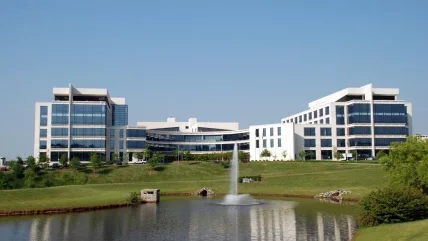
AstraZeneca has announced that its Fasenra (benralizumab) received the US Food and Drug Administration (FDA) approval for treating adult patients with eosinophilic granulomatosis with polyangiitis (EGPA) in the US.
EGPA is a rare, immune-mediated vasculitis. It can cause serious organ damage and can be fatal without treatment.
The FDA’s decision was based on the MANDARA Phase 3 trial, which was published in The New England Journal of Medicine.
The study evaluated the efficacy and safety of Fasenra compared to mepolizumab, the only other approved EGPA treatment.
MANDARA is said to be the first head-to-head non-inferiority trial of biologics for EGPA.
In the study, patients were randomly assigned to receive either a single 30 mg subcutaneous injection of benralizumab or three 100 mg subcutaneous injections of mepolizumab every four weeks.
In the trial, nearly 60% of patients treated with Fasenra achieved remission. This rate was comparable to those treated with mepolizumab.
Additionally, 41% of Fasenra patients successfully tapered off oral corticosteroids (OCS). On the other hand, only 26% of patients in the mepolizumab group achieved this.
The safety and tolerability profile of the therapy in the MANDARA trial was consistent with its established profile.
AstraZeneca biopharmaceuticals business unit executive vice president Ruud Dobber said: “Fasenra is already well established for the treatment of severe eosinophilic asthma, and with this approval, physicians in the US will now be able to offer an important new, convenient single monthly subcutaneous injection to their patients with EGPA.
“Today’s news demonstrates the potential of Fasenra to help patients suffering from eosinophilic diseases beyond severe asthma.”
Fasenra is approved as an add-on maintenance treatment for severe eosinophilic asthma (SEA) in over 80 countries, including the US, Japan, and the European Union.
Last month, it was approved in China for the maintenance treatment of patients 12 years of age and older with SEA.
It is also available for children and adolescents aged six and older in the US and Japan.
Additionally, the FDA granted an Orphan Drug Designation for this therapy for eosinophilic granulomatosis with polyangiitis (EGPA) in 2018.
Furthermore, benralizumab is being developed for additional conditions, including chronic obstructive pulmonary disease, chronic rhinosinusitis with nasal polyps, and hypereosinophilic syndrome.
This therapy was developed by AstraZeneca and is in-licensed from BioWa, a subsidiary of Japan-based Kyowa Kirin.






